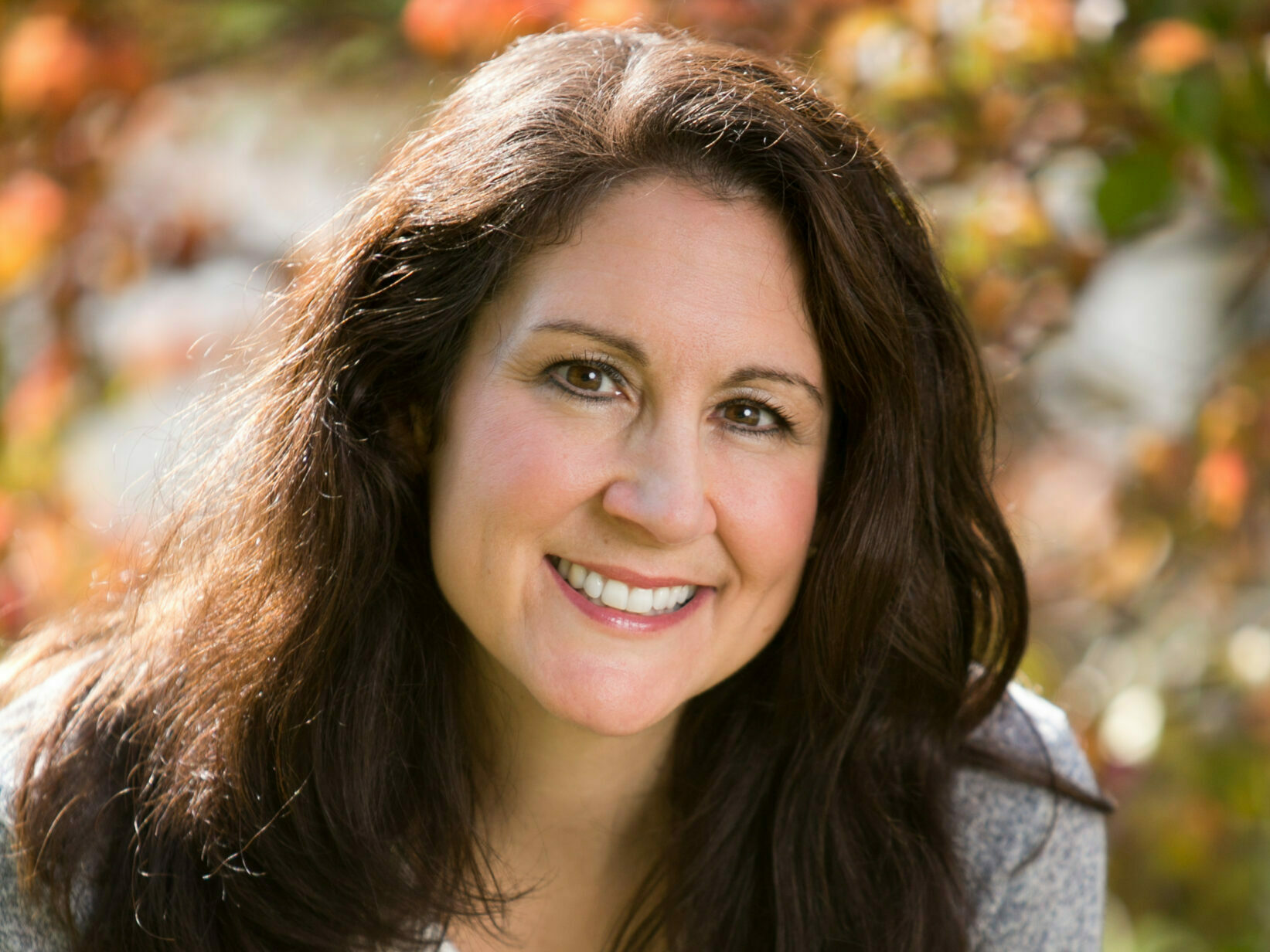
News
Raising Awareness of Chronic Illnesses
Play audio version
Meet DJP Mentor Meredith O’Brien
October 5, 2021
Disability Justice Project mentor Meredith O’Brien has always loved reading and writing. “As a kid, I was often reading and trying my hand at writing little stories,” she says. “I’d find notebooks around the house and just start writing stories in them.”
Today, O’Brien is a 52-year-old author of four books and has been a School of Journalism instructor at Northeastern University for the last six years. She previously taught journalism at the University of Massachusetts Amherst and Framingham State University, and she has written for multiple publications, including The Union-News (now called The Republican) in Springfield, Massachusetts, and The Boston Herald. Additionally, she’s worked for the Center for Public Integrity, a nonprofit news organization dedicated to inspiring change through investigative reporting.
O’Brien is a Massachusetts native. She grew up in West Springfield and is the oldest of two children. Though she’s had an affinity for literature since childhood, a pivotal pop quiz in an AP history class during her high school senior year partially prompted her interest in journalism.
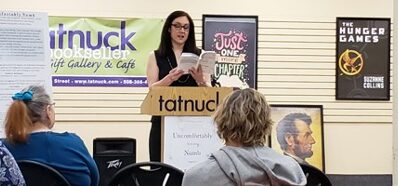
Her AP history teacher made her realize how little she knew about domestic and international news. “… As soon as I was a freshman at UMass Amherst, I decided to take a journalism class and got involved with the student newspaper there … and from then on … it just whet my appetite,” she says. O’Brien ultimately received her undergraduate degree in journalism and political science. In 1994, she pursued a master’s degree in political science from American University to gain a deeper understanding of politics and to enhance her reporting on the topic.
O’Brien likes to write on social media too. She is a news and Twitter enthusiast; her commentary includes pop culture, news analysis, sports, and literature. When she’s not tweeting in her spare time, she’s reading books, watching films, or spending time with her two dogs. She is also married and a mother of three.
To make [disability] part of life, that’s what I would love for it to be – part of life that everybody’s respectful of and aware of and understanding.
Meredith O’Brien
In recent years, O’Brien has shifted her focus mainly to teaching and book-writing. Last year, she published Uncomfortably Numb, a memoir about her experience with multiple sclerosis since her diagnosis in July 2014. The book was originally a thesis for her master’s degree in creative non-fiction at Bay Path University from 2016. “Writing a memoir was very scary,” she says. “It was natural when I started it for my MFA program but to actually launch it out to the world was scarier than any … of the other pieces of work I had written.”
O’Brien believes educating people about chronic illnesses and invisible symptoms is important. She herself has experienced harassment due to a lack of widespread awareness of chronic illnesses. Her involvement with the Disability Justice Project, however, is an avenue to prompt awareness of disability via journalism. She wants to see fellows of the DJP write about disabilities in a fearless and thoughtful way. “For the world to be able to come to terms with everybody’s different abilities … to make [disability] part of life, that’s what I would love for it to be, part of life that everybody’s respectful of and aware of and understanding.”
News From the Global Frontlines of Disability Justice
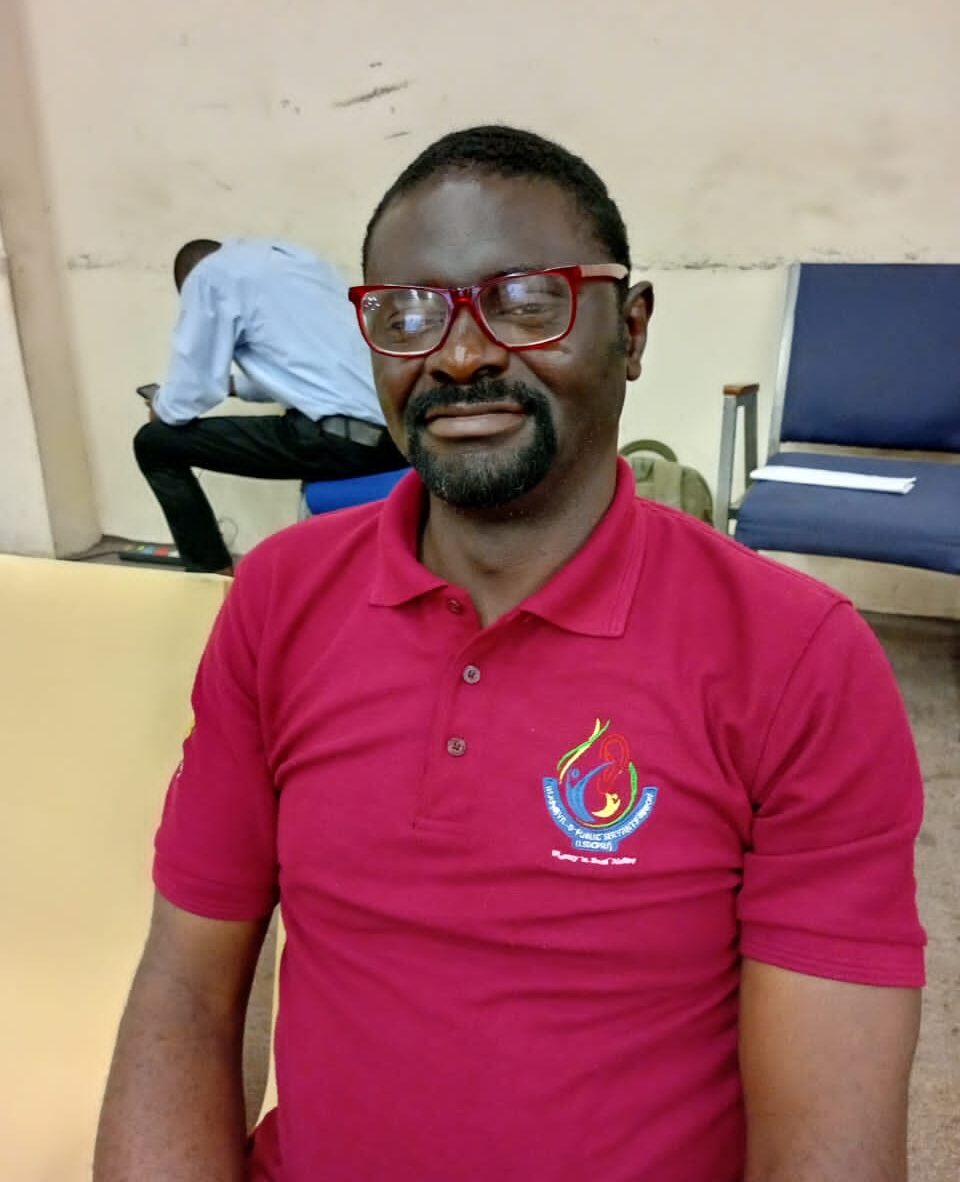
From Isolation to Advocacy
Nigeria’s DeafBlind community has long lacked recognition, but the launch of the Deaf-Blind Inclusive and Advocacy Network marks a turning point. Led by activist Solomon Okelola, the group seeks to address communication barriers and a lack of support. Among those affected is John Shodiya, who once thrived in the Deaf community but struggled with belonging after losing his sight.
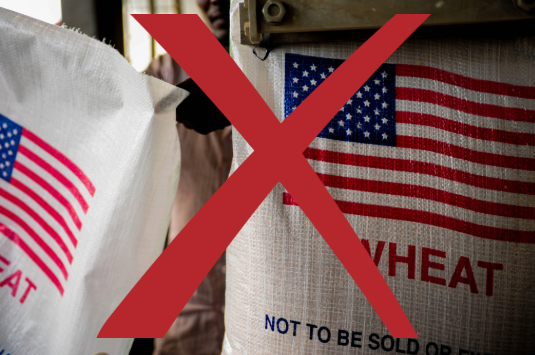
Disability Aid Disrupted
The Trump administration’s 90-day pause on USAID funding has had far-reaching consequences, particularly for disabled people and organizations worldwide, including members of the Disability Justice Project (DJP) community. Activists from Nigeria, the Democratic Republic of Congo, and Rwanda report severe disruptions, deepening challenges for marginalized communities, especially disabled people facing conflict, poverty, and structural discrimination.
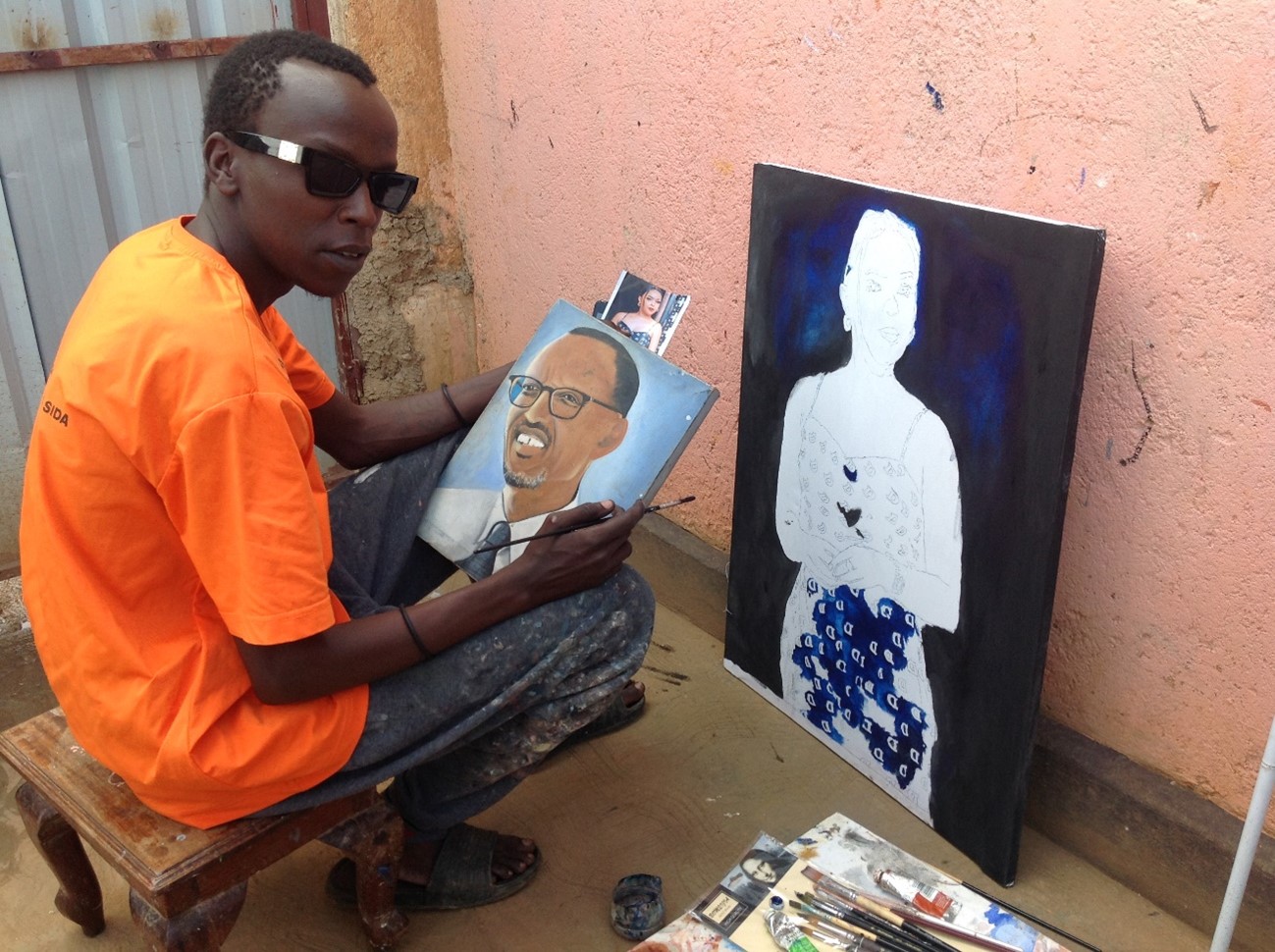
A Life’s Work
After losing his sight, artist Jean de Dieu Uwikunda found new ways to create, using a flashlight at night to outline objects and distinguishing colors by their scents. His story, along with that of DeafBlind sports coach Jean Marie Furaha, is rare in Rwanda. While over 446,000 Rwandans have disabilities, a 2019 study found that only 52 percent of working-age disabled adults were employed, compared to 71 percent of their non-disabled counterparts.
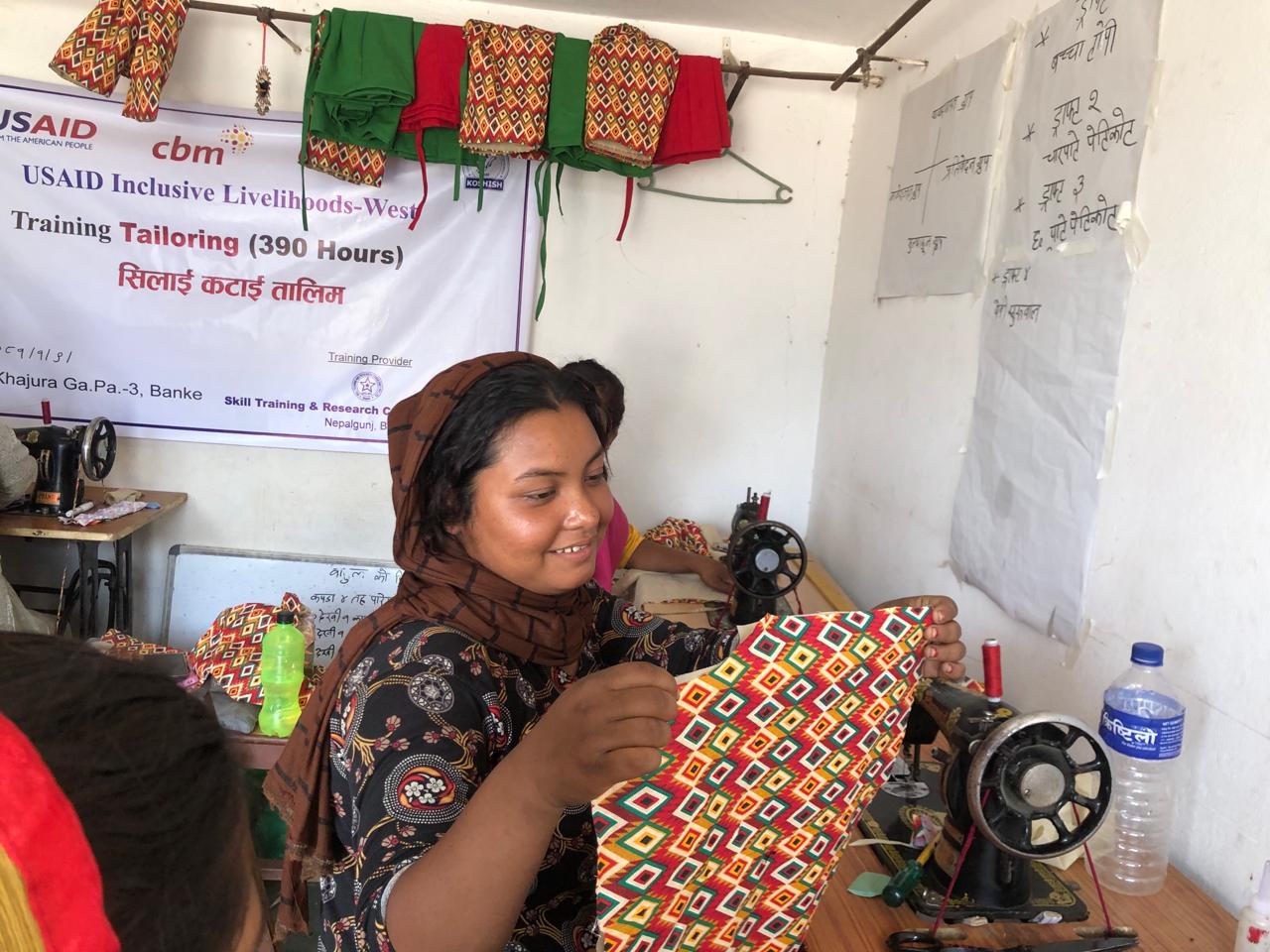
‘I Won’t Give Up My Rights Anymore’
After a life-altering accident, Lakshmi Lohar struggled with fear and stigma in her rural Nepalese community. In 2023, she found a lifeline through KOSHISH National Mental Health Self-Help Organization, which helped her develop social connections and access vocational training in tailoring. Today, Lakshmi is reclaiming her independence and shaping a future beyond the limitations once placed on her. “I won’t give up my rights anymore,” she says, “just like I learned in the meetings.”

Rwanda’s Marburg Crisis
As Rwanda confronts its first-ever Marburg virus outbreak, people with disabilities face heightened risks — not only from the virus but also from the lack of accessible health information. “Without proper accommodations, such as sign language interpreters, captions, Braille, or visual aids, the Deaf and DeafBlind community may miss crucial information about how to protect themselves, symptoms to watch for, or where to seek help in case of infection,” says Joseph Musabyimana, executive director of the Rwanda Organization of Persons with Deaf Blindness.
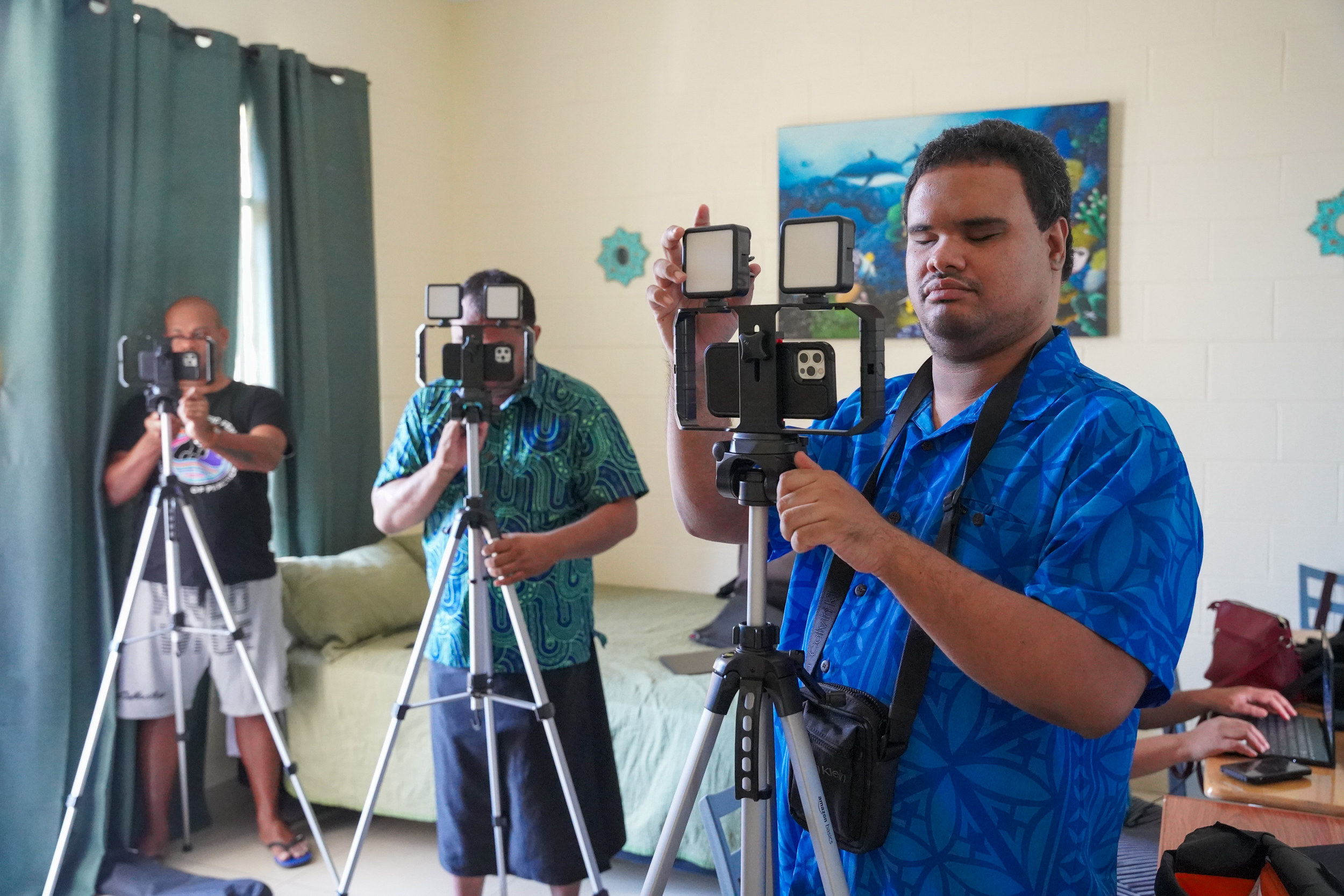
Capturing Vision Through Sound and Touch
Last year, the DJP trained Indigenous activists with disabilities from the Pacific on the iPhone camera to create a documentary series on disability and climate change. With VoiceOver, the iPhone provides image descriptions for blind and low-vision filmmakers and offers other accessible features. “If you think about it, it doesn’t make sense for a blind person to use a camera,” says DJP filmmaker Ari Hazelman. “The iPhone gives you more avenues to tell your story in a more profound way as a blind person.”